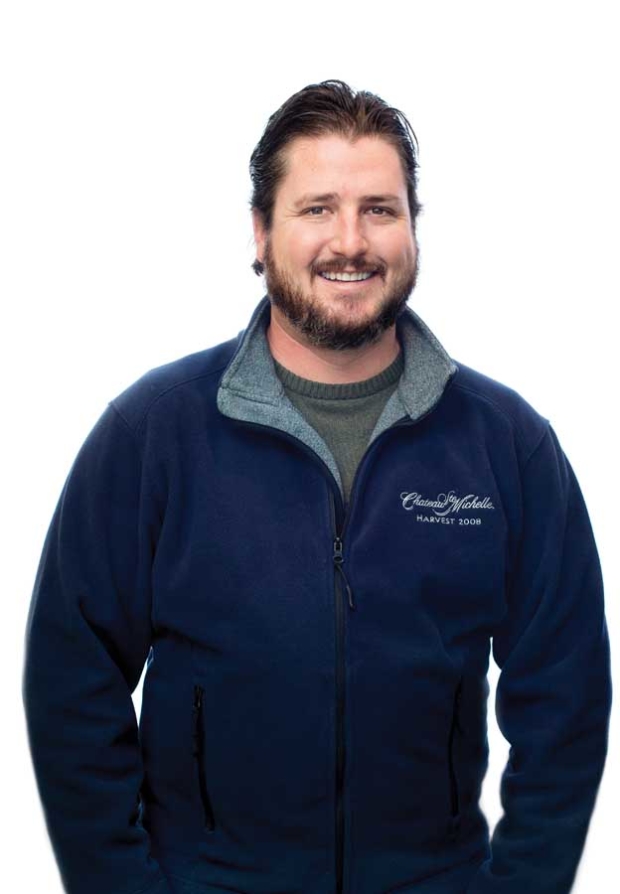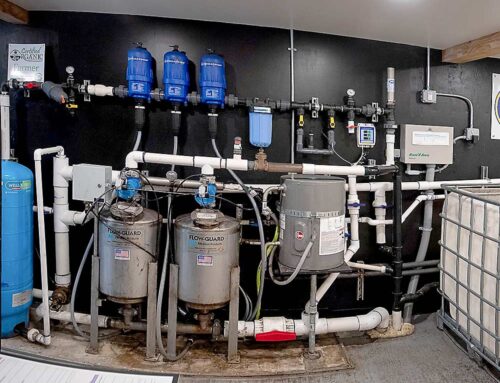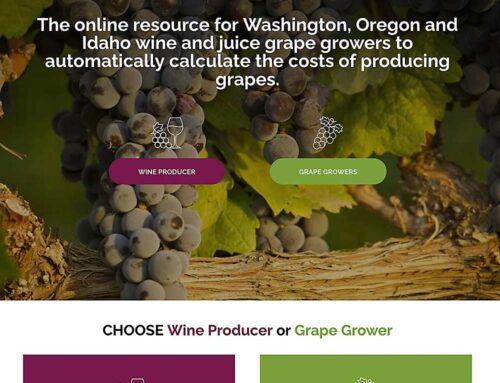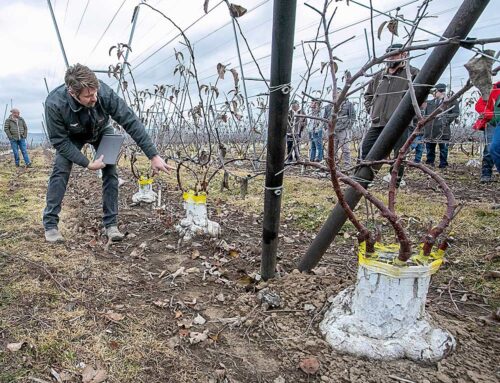Mike is a first-generation grower who pursued a degree in winemaking before getting his start working in wine sales, distribution and learning to make wine at Corliss Estates.
age / 35
crops / Wine grapes
business / Vineyard Equipment Manager, Chateau Ste. Michelle Canoe Ridge Estate Vineyard
 How did you get your start?
How did you get your start?
I’m a first-generation grower and, at a young age, I learned what my passion was and what I wanted to do with my life.
I pursued a degree in winemaking and started working in wine sales and distribution. After that I joined Corliss Estates working with their grapes on Red Mountain while learning to make wine.
From there, I took an opportunity with Ste. Michelle that would allow me to really develop my viticulture skills. All along the way I’ve obtained a ton of knowledge.
Even though my path might not have been direct, I think the education I’ve gained from it is fairly significant.
What are your main tasks?
I’ve been working with the management team to figure out what our shortcomings are, what we can improve on in the vineyard, year-in, year-out.
Also, keeping on top of what’s popular in the industry does give me an edge and understanding where we can improve quality. You can’t make good wine with bad fruit. It all starts in the vineyard.
What do you see as the focus for vineyards of the future?
Looking forward, if labor is an issue then we’ll plan for mechanization to reduce potential problems.
I think we’ll see a significant dip in the next three to five years. We need to figure out how to balance the quality against a reduction of labor. Quality control using mechanization has been fairly inconsistent.
What do you think Washington vineyards will be doing soon?
I think over the next several years you’re going to see a lot of older vineyards coming across problems with plant parasitic nematodes, Eutypa dieback, and grapevine leafroll virus.
We’re going to have to figure out a way to remove significant amounts of vineyard in a short period of time for replant. Because the second you know you’ve got a problem, you’ve got to remove it.
From a technology standpoint, we’ve found a machine that can take a single plant and remove all root infrastructure out of the ground before replant.
What would you tell younger growers?
For anyone looking to make a career in viticulture or winemaking, understanding everything from the ground up is probably going to benefit you.
Though I didn’t know where I’d be, I knew that as long as I was working in this industry, opportunities would continue to present themselves.
I think for someone younger than me, if you’re not sure about what to do, then just jump right in and you will figure it out. My dad had a strong work ethic, and I was able to take from that and apply it to my career in the wine industry.
It is extremely hard work that involves a lot of hard hours, but the payoff is being able to say that I grow wine grapes. How cool is that?






Leave A Comment